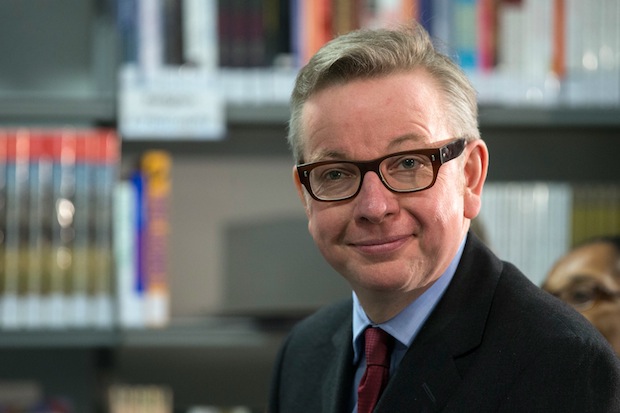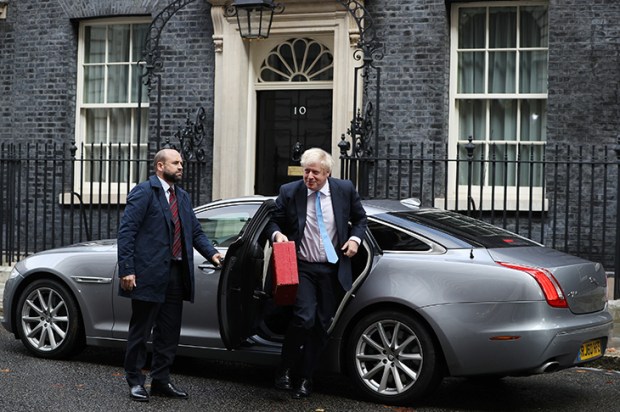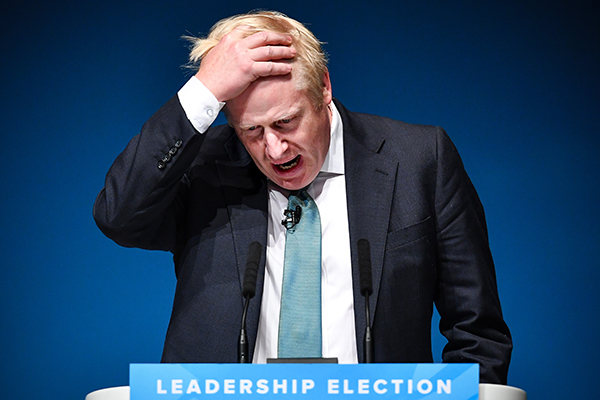Listen
From the moment he took his job, Michael Gove knew that he would make energetic and determined enemies. The teachers’ unions, local councillors and even his own department all stood to lose from his reforms — and all could be expected to resist them. What the Education Secretary did not expect was hostile fire from those who should be his friends.
At the start of the coalition, Gove and Nick Clegg were allies. With a moral passion rarely seen in British politics, they used to argue that social mobility should be the centrepiece of the government’s reform agenda. Two years ago, when many Tories were already cooling on coalition, Gove even requested that the Liberal Democrat David Laws be made a minister at his department. But this alliance is over. For the past few months, Lib Dem attacks on Gove have been as regular as England batting collapses. Sources close to Clegg furiously deny that this approach is driven by polling data demonstrating Gove’s unpopularity with teachers. But whatever the cause, Gove’s coalition partners are now throwing up obstacles in his way.
More puzzling, though, is a Tory whispering campaign against Gove that has gathered pace in recent days. At first glance it is baffling: why would the Tories wish to attack one of their most successful and effective ministers? And one of the few giving the party a moral purpose? One anti-Gove group is made up of Tory ministers and MPs resentful of his proximity to Cameron, his influence and his dual-income household. Gove is married to Sarah Vine, the Daily Mail’s star columnist, who is a godmother to Cameron’s daughter Florence. Such cosiness enrages certain Tories, resentful of Cameron’s way of governing through his best friends.
This irritation is heightened by the belief that Gove is given a special licence to interrogate other ministers in meetings. The Education Secretary does regard cabinet (and its various committees) as a forum for intellectual combat, which explains his falling out with Theresa May. Much to her chagrin, he tore apart her planned immigration cap after the election. He later weighed in with typical force on Islamic extremism. Finally, a year ago, Gove attacked her for giving a speech which he (along with many others) suspected was intended to burnish her own leadership credentials ahead of a post-defeat contest. It is now hard to imagine relations between these two ever recovering. The Home Secretary is not the forgiving type.
But the loudest voices in this whispering campaign against Gove belong to Boris Johnson’s followers. There has always been a certain sense of competition between these two journalists-turned-politicians. Both could have become national newspaper editors, but neither could resist the lure of the House of Commons. Both rank amongst the most amusing and intellectually interesting Tories of their generation.
Their rivalry has taken on a new edge since David Cameron decided that Gove, with his rapier-sharp wit, was the man to keep Boris in his box. A minister familiar with the strategy says, ‘Michael is licensed to sink his teeth into Boris’s ankles in a way that neither the boss nor George can.’ Gove took on this role as the ‘licensed bear-baiter’ with gusto. One of those who has watched them duel across a dining table observes, ‘He does like winding Boris up.’
The two have lately been sparring over education policy. The Mayor would like more power over London schools, but the Education Secretary is reluctant to give it to him. As one friend of both men remarks, ‘There have been some genuine tensions over education. But it doesn’t account for all this madness.’
So what does? Boris Johnson’s paranoia about the next Tory leadership race. Despite being by far the best-placed candidate, Boris is extremely jumpy about any sense that the Tory establishment is closing ranks against him. The spark for these recent hostilities was a Gove dinner with Rupert Murdoch. When the subject of the Tory succession was raised, Gove explained his preference for Osborne over Boris. These comments were then relayed by one guest back to the Boris camp, leading to a furious eruption. There was such sensitivity about what Gove had said to Murdoch because it is well known that the media magnate views the former Times journalist as a future Tory leader.
The Boris operation can be divided between his official mayoral office and his provisionals, who operate with verbal brutality and plausible deniability. One Tory says: ‘It’s like Blair-Brown with them. A journalist calls them up and says: “They’re saying this about you.” They respond with some ridiculously over-the-top-quote.’ The provisionals’ approach is to escalate: to bring a gun to a knife fight. It is they who have led the charge against Gove in recent weeks, briefing viciously against him. The Mayor would be well advised to rein his henchmen in. While Boris may be obsessing about who succeeds Cameron, Gove is not. Nor is he spending his days trying to clear the way for a 2015 Osborne leadership challenge. One of those who knows him best says, ‘If Boris’s lot think Michael is sitting in the Department for Education with maps on the walls, working out how to stop Boris, they’re mad.’
Part of the problem is that Boris is thinking too much about what happens if — to use his phrase — ‘the ball comes lose from the back of the scrum’. As things stand, Boris’s prop forwards are in danger of being cited for gouging. One Tory minister, who has regular dealing with the Mayor, says the spat really ‘reveals that Boris doesn’t have enough to do’. Word from the City is that his envoys have been busy wooing Tory donors, arguing that he’s the only politician who can successfully defend them from wealth taxes.
That so many Tories are taking aim at Gove reveals something else, though. As one of Cameron’s long marchers says wearily, ‘A year out from the election and with all the downsides of Miliband, we still can’t get people to focus on what matters.’
The Tories’ energies should now be dedicated to entrenching their reforms — not squabbling with each other. Rallying to the support of the Gove agenda against its critics would show that this was a party serious about exercising power. If the Tory party can’t manage even this, it really is doomed to election defeat.
Got something to add? Join the discussion and comment below.
Get 10 issues for just $10
Subscribe to The Spectator Australia today for the next 10 magazine issues, plus full online access, for just $10.
You might disagree with half of it, but you’ll enjoy reading all of it. Try your first month for free, then just $2 a week for the remainder of your first year.














Comments
Don't miss out
Join the conversation with other Spectator Australia readers. Subscribe to leave a comment.
SUBSCRIBEAlready a subscriber? Log in